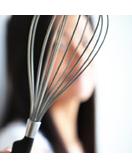- Some contain salted duck eggs but some don't... especially the cheap frozen ones sold in Asian groceries. Typically, salted duck eggs are quite expensive. To keep the cost of manufacturing, salted duck egg yolks are never added into these cheap buns.
- Some contain coconut milk but some don't... especially non the southern-Asia-originated ones.
- Some contains evaporated or condensed milk but some don't...
- Some has flowing molten filling but some are not...
Liu Sha Bao (流沙包) meaning flowing filling buns (Chinese) is actually a variant of Lai Wong Bao (奶黄包) meaning custard steamed buns (Chinese) but has a flowing molten filling instead of having a traditional firm custard filling. After reading this fantastic recipe by The 350 Degree Oven, it seems that making my own delicious flow-y Liu Sha Bao with high Hong Kong Dim Sum / Yum Cha restaurants standard is not difficult at all and absolutely possible. Here, I'm curious to try...
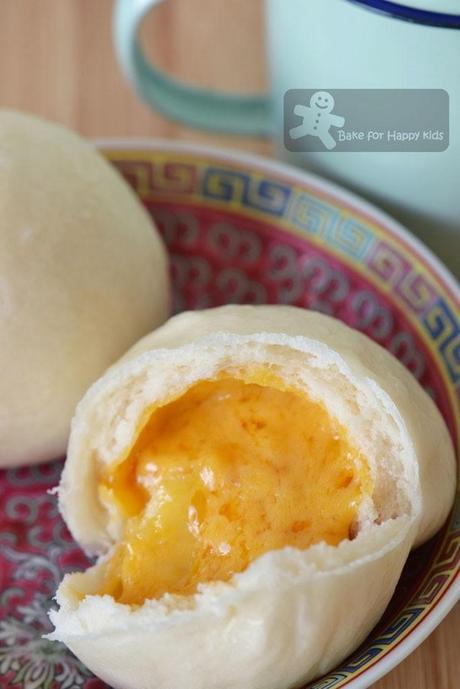
Mission possible - My homemade Liu Sha Bao!
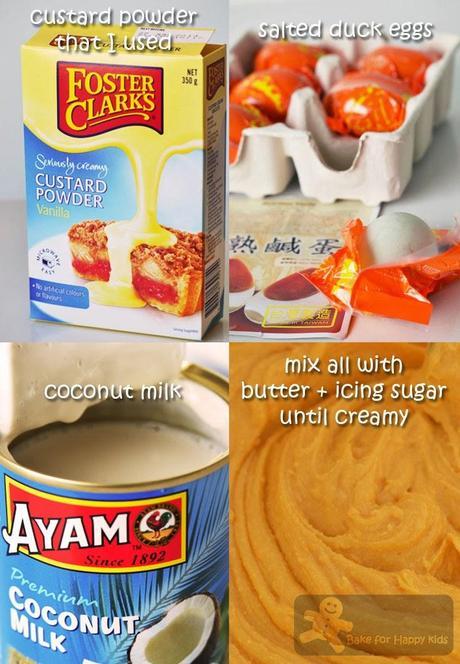
Making the "molten" custard filling is easy!
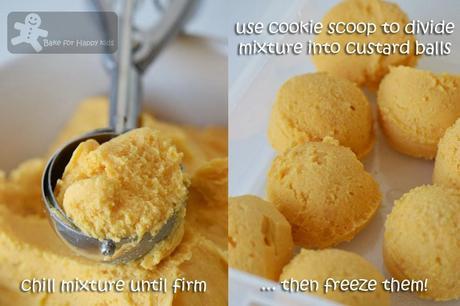
This is how the fillings keep their shapes before steaming.
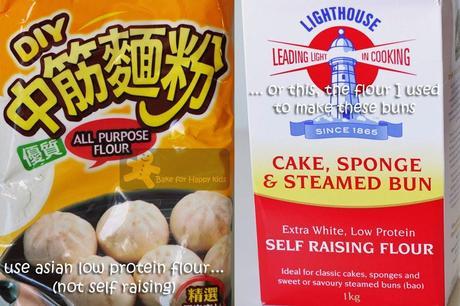
To make the bao dough, you can use either the above type of flour as shown.
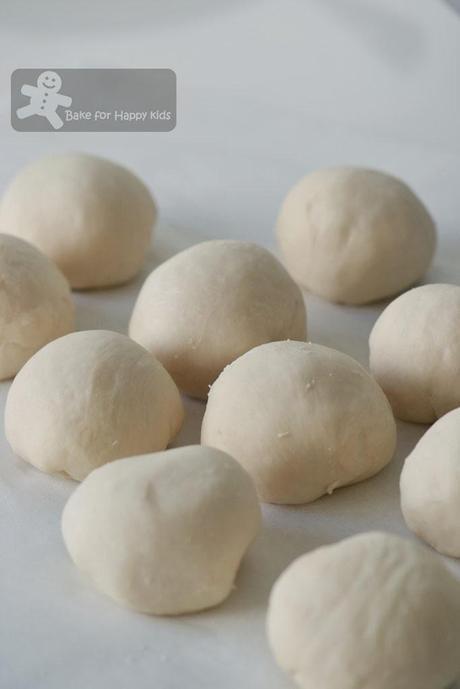
Divide the bao dough into portions...
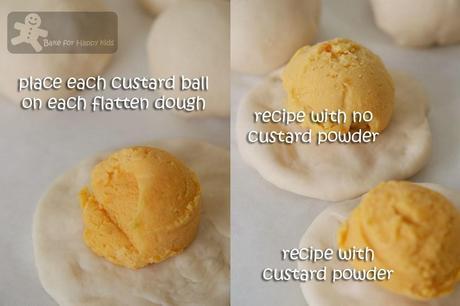
I made the buns with two kinds of fillings with no custard powder or with custard powder...
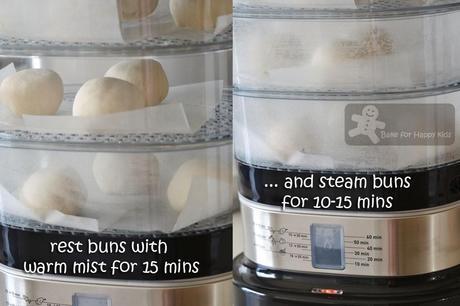
Beware! Remember NOT to over-steam the buns as over-heated filling will explode!
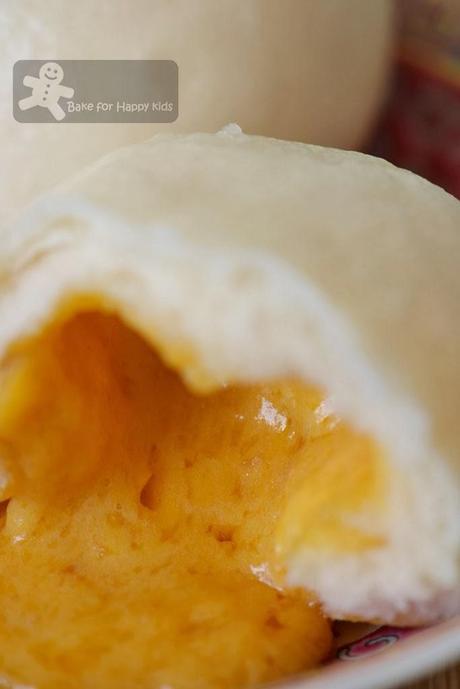
I was like... Wooh!!! seeing this... the custard flowed out like crazy immediately after steaming.
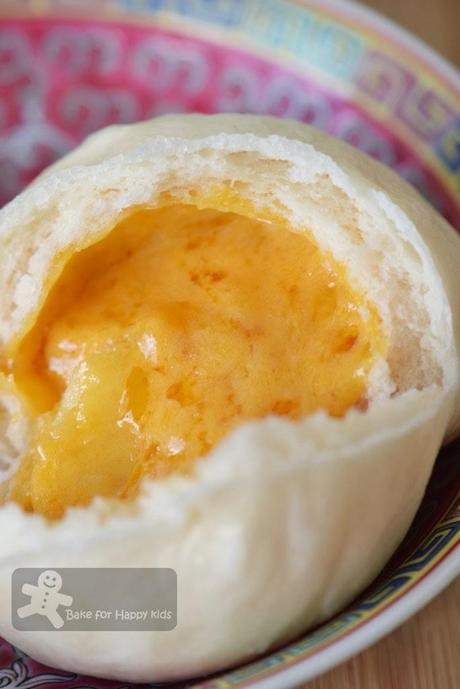
It contains better after cooling down a little bit...
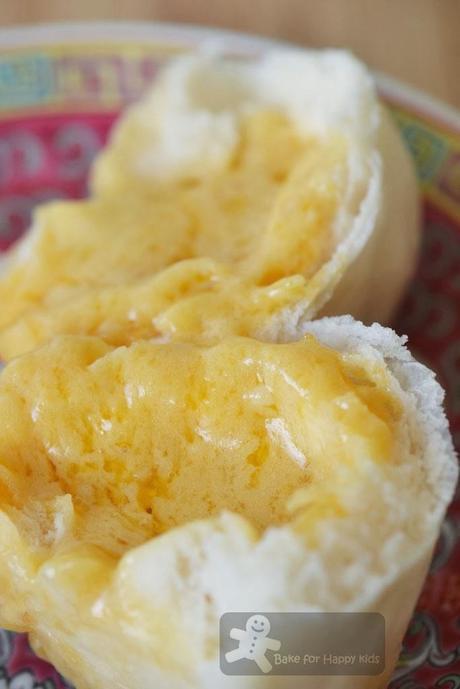
This is the bao with extra milky custard filling with custard powder.
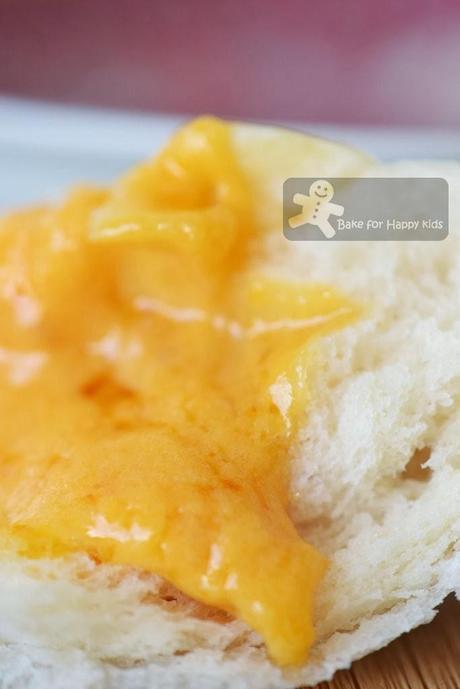
I'm loving this bun... every single bit!
Yes that these custard buns are similar to those selling in Hong Kong Dim Sum / Yum Cha restaurants.
Yes that these custard buns are a bit rich but they are extremely yummy!
Both fillings with custard powder or no custard powder are equally good! I reckon that the preference of filling is highly depending on each individual. For those who like more buttery and milky flavours, you will like the filling with no custard powder which is extra creamy and rich. For those who like more custard-y or rich yolk flavours, you will like the filling with custard powder which is smooth and flavoursome. I'm more towards the custard kind of person and so I like the custard one slightly more than the other.
Here's the recipe mostly adapted from The 350 Degree Oven
(converted from cups to grams, making reasonable amount to avoid massive amount of leftover for our small family)
Makes 10 buns with 2 extra custard fillings
Salted Egg Custard Filling with custard powder:
Makes 12 portions of filling3 salted duck eggs, fully cooked, shelled and use egg yolks only
60g unsalted butter, soften
50g icing sugar
30g custard powder
45g dry milk powder
5g cornflour
30ml coconut milk (I used Ayam regular coconut milk)
Salted Egg Custard Filling with NO custard powder (mostly adapted from Baking Diary):
Makes 9 portions of filling
3 salted duck eggs, fully cooked, shelled and use egg yolks only
60g unsalted butter, soften
30g icing sugar
5g cornflour
30g dry milk powder
25ml coconut milk (I used Ayam regular coconut milk)
Bao Dough:
280g flour, preferably with 7-9% protein content
(Sadly, I wasn't able to find any Hong Kong flour when I made these bao and so I used Lighthouse low protein, self-raising bleached flour which is also suitable to make steamed buns.)
1/2 tsp baking powder
(If you are using flour which is NOT self raising, please add this. Otherwise, please omit this.)
1/2 tsp salt
1 1/2 tsp active dry yeast
15g sugar
1 tbsp canola oil
125-140ml water (It was a dry day when I made these and I used 140ml)
Custard Filling:
Make the filling one day ahead.
Using a fork, mash the salted duck egg yolks into fine crumbs. Using a wooden spoon or an electric mixer, beat butter and icing sugar in medium speed until combined. Lower mixing speed to low and add the remaining ingredients and mix until well-combined.
Refrigerate the custard filling until cold and firm. When firm, use a cookie scoop to scoop out and divide the custard into 12 portions. Place the custard balls on a plate or container (lined with cling wrap for easier removal, optional), freeze it overnight with a cover or cling wrap.
Tip: You can keep any unused filling in the freezer and use them anytime when you make any bao dough.
To make bao dough:
Place the sugar, salt, oil, and water in the bottom of the breadmaker pan. Top with flour (with or without baking powder). Add yeast the last and switch on the machine with "dough” setting.
If breadmaker is not available, combine all bao ingredients and knead to form a smooth dough (at least 20 mins) and then let it rise for 1 hr.
When the dough is ready, divide into 10 portions. Meanwhile, set water to boil in a steamer.
Flatten the dough pieces with your hands, and place a frozen custard filling ball in the center. Pinch up the sides of the dough to completely enclose the filling.
Place each bao on each paper cup liner or a small piece of baking paper with its seam sides down. Rest the bao in warm mist for 10-15 mins.
Steam baos for about 8-15 mins until done. The steam timing varies if you have multiple layers of baos to steam. The layer that is closest to the direct steam will take 8 mins to cook.
Beware! Please DO NOT over-steam!!! Otherwise, the custard filling will explode out of the bao.
Serve immediately but beware that the molten filling is steaming hot!
Happy Steaming!
I'm submitting this post to the Hong Kong / Macau event of Asian Food Fest (AFF) organised by Wendy, Table for 2 and hosted by Annie, Annielicious Food.
